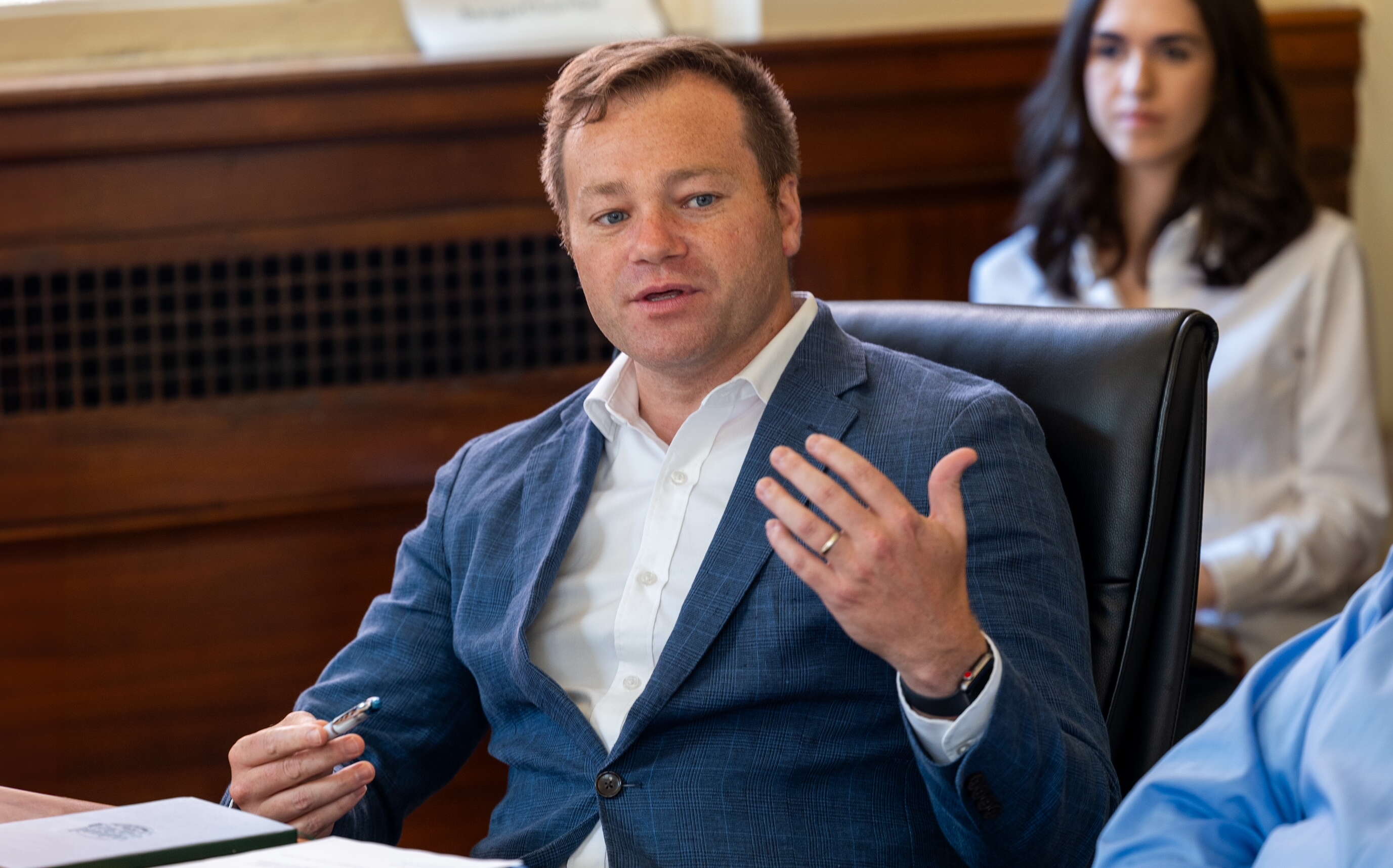
Processing Your Payment
Please do not leave this page until complete. This can take a few moments.
- News
-
Editions
-
- Lists
-
Viewpoints
-
Our Events
-
Event Info
- Women's Leadership Forum 2025
- On the Road with Mainebiz in Bethel
- Health Care Forum 2025
- On The Road with Mainebiz in Greenville
- On The Road with Mainebiz in Waterville
- Small Business Forum 2025
- Outstanding Women in Business Reception 2025
- On The Road with Mainebiz in Bath
- 60 Ideas in 60 Minutes Portland 2025
- 40 Under 40 Awards Reception 2025
- On The Road with Mainebiz in Lewiston / Auburn
- 60 Ideas in 60 Minutes Bangor 2025
Award Honorees
- 2025 Business Leaders of the Year
- 2024 Women to Watch Honorees
- 2024 Business Leaders of the Year
- 2023 NextUp: 40 Under 40 Honorees
- 2023 Women to Watch Honorees
- 2023 Business Leaders of the Year
- 2022 NextUp: 40 Under 40 Honorees
- 2022 Women to Watch Honorees
- 2022 Business Leaders of the Year
-
-
Calendar
-
Biz Marketplace
- News
- Editions
- Lists
- Viewpoints
-
Our Events
Event Info
- View all Events
- Women's Leadership Forum 2025
- On the Road with Mainebiz in Bethel
- Health Care Forum 2025
- On The Road with Mainebiz in Greenville
- On The Road with Mainebiz in Waterville
- + More
Award Honorees
- 2025 Business Leaders of the Year
- 2024 Women to Watch Honorees
- 2024 Business Leaders of the Year
- 2023 NextUp: 40 Under 40 Honorees
- 2023 Women to Watch Honorees
- 2023 Business Leaders of the Year
- + More
- 2022 NextUp: 40 Under 40 Honorees
- 2022 Women to Watch Honorees
- 2022 Business Leaders of the Year
- Nomination Forms
- Calendar
- Biz Marketplace
Boston Fed chief tells Mainebiz: Data will dictate the rate-cut timing
Despite widespread expectations of a September interest rate cut by U.S. central bankers, the head of the Federal Reserve Bank of Boston isn't showing any cards.
“We’ll have to let the data tell us,” Susan M. Collins told Mainebiz in a phone interview from Millinocket, where she wrapped up a two-day visit to Maine that also included stops in Bangor and Biddeford.
Collins is currently a non-voting member of the Federal Open Market Committee, which decides on interest rates, but she takes part in its discussions as it deliberates economic and monetary policy.
“I do think the data that we have received this quarter have been really encouraging,” she said. “At the same time, data in the first quarter of 2024 were much less encouraging, and just like it wasn’t helpful to overreact to those data, I don’t think it’s helpful to overact now … and we’ll receive quite a bit of data between now and September.”
The Federal Reserve last raised interest rates July 26, 2023, adding 25 basis points to put the federal funds rate at a range of 5.25% to 5.5%. In June, U.S. consumer prices fell 0.1%, leaving the year-on-year inflation rate at 3%.
Inflation has gradually subsided toward the Fed’s 2% target.
Asked whether she sees any room for the Fed to move away from that self-imposed goalpost, Collins said, “I remain very committed to our 2% target.”
“I think that one of the most important assets the Federal Reserve has is its credibility and following through on a commitment is one of the ways that we have been able to make the progress we have on bringing inflation down from the earlier peak,” she added.
Economy 'in a good place'
On the U.S. economy, Collins has an upbeat outlook.
“I think the economy is actually in quite a good place,” she said. “We have significantly reduced inflation, thought it is still elevated and there’s more to do. And we’ve done that amid a healthy labor market.”
This was Collins' third visit to the Pine Tree State since she became president and CEO of the Boston Fed in July 2022; her first visit was that October. Collins, a naturalized U.S. citizen of Jamaican descent, was born in Scotland and raised in New York City. She formerly served as provost and executive vice president of the University of Michigan.
In Maine last week, she started with a tour of Atlantic Sea Farms in Biddeford, followed by a roundtable lunch with fisheries and aquaculture industry representatives.
The next day she headed north to Bangor, for a discussion with business leaders organized by the Maine State Chamber of Commerce and Greater Portland Chamber of Commerce, and then to Millinocket for stops at small downtown businesses and a tour of the One North development on the site of the former Great Northern paper mill.
“One of the things that I found most interesting about that was the range of innovative projects that are either underway or being considered to use that site for,” she said.
“I think the rural areas are very important parts of New England and certainly of Maine,” she added. “Being able to talk to people in the economy here firsthand really complements the kind of information we can get from the statistics.”
Maine's housing challenges
Impressed with the “the creativity, the resilience and innovation” she heard about during her visit, Collins said the lack of affordable housing also came up frequently.
She said that while that’s also a national challenge, Maine's older housing stock and rising prices — partly driven by the surge in out-of-state buyers during the pandemic — are unique to the state.

Patrick Woodcock, president and CEO of the Maine State Chamber of Commerce, summed up some of the other issues that came up during the roundtable discussions.
"Business leaders universally raised concerns about housing and the constraints that is placing on their business and Maine’s economic potential,” he told Mainebiz. “In addition, labor scarcity, the limitations in real estate transactions, inflation and consumer tolerance for new pricing were raised by participants.”













0 Comments